- Faculty of Engineering
- Department of Electronics and Computer Engineering Department of Electrical Systems Engineering Department of Mechanical Systems Engineering Department of Intelligent Mechanical Engineering Department of Civil and Environmental Engineering Department of Architectural Engineering
- Faculty of Applied Information Science
- Department of Computer Science Department of Information and Communication Department of Information Systems and Management
- Faculty of Environmental Studies
- Department of Architectural Design Department of Global Environment Studies
- Faculty of Life Sciences
- Department of Clinical Engineering Department of Food Sciences and Biotechnology
- Graduate School
- Major in Intelligent Structure and Functional Science Major in Electrical and Electronic Engineering Major in Mechanical Systems Engineering Major in Civil and Architectural Engineering Major in Information Systems Science Major in Environmental Studies Major in Biological and Biomedical Engineering
Faculty of Applied Information Science
Department of Information and Communication
- Department Introduction
- Education and Research Areas
- Subject Introduction
- Curriculum
- Department Introduction MOVIE
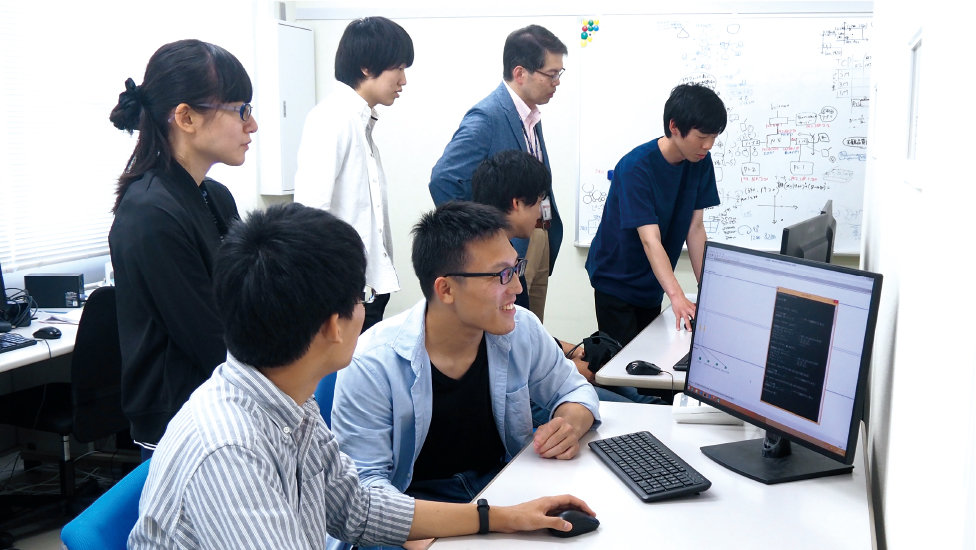
Producing engineers and technical experts capable of utilizing information to create social value.
“Identifying features found in image data.” “Selling excess vegetable production online.” “Using AI to select the most efficient bus route.” Advanced information processing creates new value for society. The Department of Information and Communication cultivates engineers capable of envisioning and proposing new ways in which information can be used to contribute to society now and in the future.
Education and Research Areas
-
Management Information Systems
Students will acquire knowledge and skills which allow them to improve the efficiency and effectiveness of, or even to fully automate, those tasks in business, such as accounting and scheduling, where the results do not depend upon who performs them. In addition, they will learn techniques for facilitating data-based business decisions that do not rely upon intuition or experience.
-
Data Science
A key challenge in business is to come up with novel services and other means of cultivating new customers. Students will learn how to use technology to identify social needs and solution ideas hidden within big data. Beyond this, they will study topics and methods such as decision-making and new business creation.
-
Social Media
A defining characteristic of social media is its potential for facilitating personal growth by combining people’s needs with a means of connecting people with one another. Students studying social media will learn how to construct new services which utilize psychological and sociological mechanisms for incorporating factors such as user psychology.
-
Communications
Currently, technology is being developed which allows us to know a user’s feelings based on analysis of his or her expressions and movements. Application of this technology will not only make the user interface more convenient, it also has the potential to make it more helpful. The hope is to develop a friendly communication tool that will unconsciously elicit a, “Thank you,” from users when they finish using it.
Subject Introduction
-
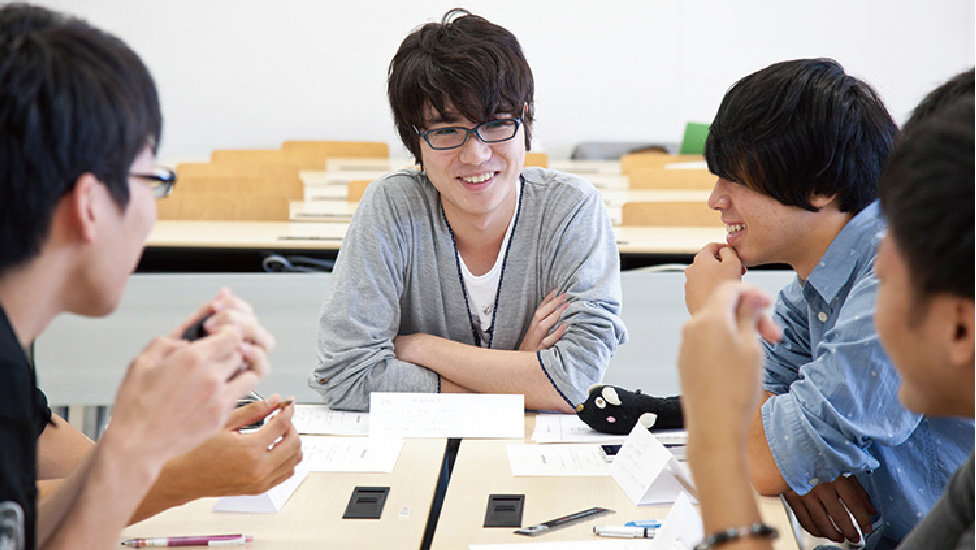
Technology Management
Innovation applies not only to products but also to the production process technologies used to manufacture them. Course lectures will incorporate case studies into an exploration of management strategies and strategic policies which foster innovation.
-
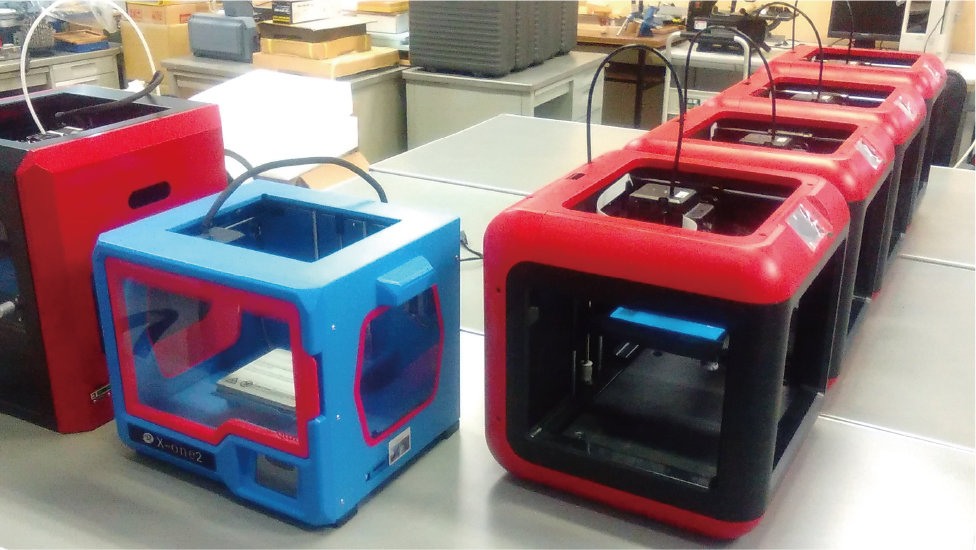
Application Design B
Students will identify customer needs, establish themes, come up with ideas and use CAD and 3D printing to produce a prototype product, educational game, etc. And functional validation through user testing will be carried out as students learn about information systems development.
-
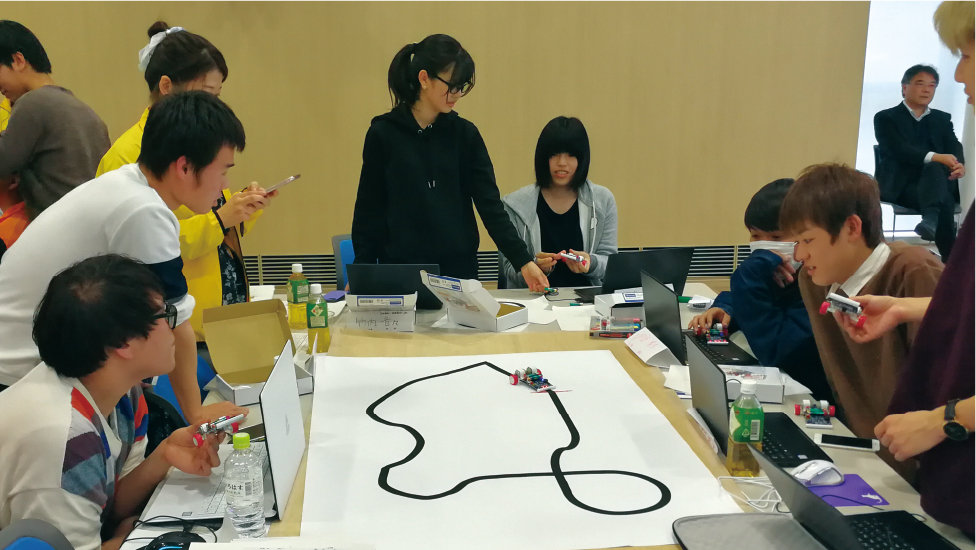
Gamification Technology
Gamification is the application of a game-like structure in different fields. Course lectures will use the gamification of problem-solving as an example through which students will learn solution-oriented design methodology, system development and implementation skills.
-

Web Design
Students will undertake practical training in the manufacturing cycle and various programming languages in order to cultivate basic Web design and production skills. In addition, students will gain an understanding of human-centered design fundamentals, as well as design, evaluation and improvement theory.
-
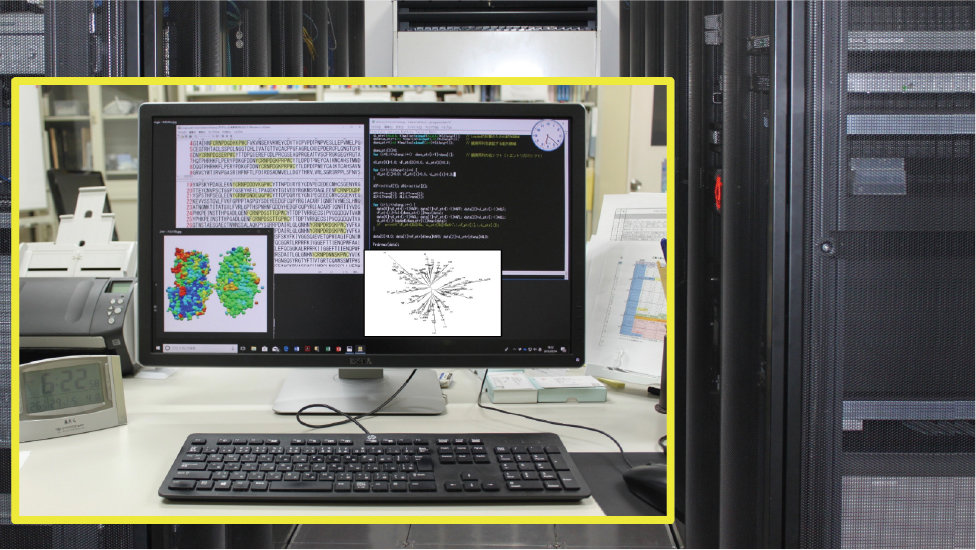
Data Mining
In the context of the growing importance of technology capable of extracting information and regular patterns associated with meaningful human behavior from large volumes of data, students will learn about the three-part methodology of “property determination,” “categorization and comprehension” and “prediction creation.”
Curriculum
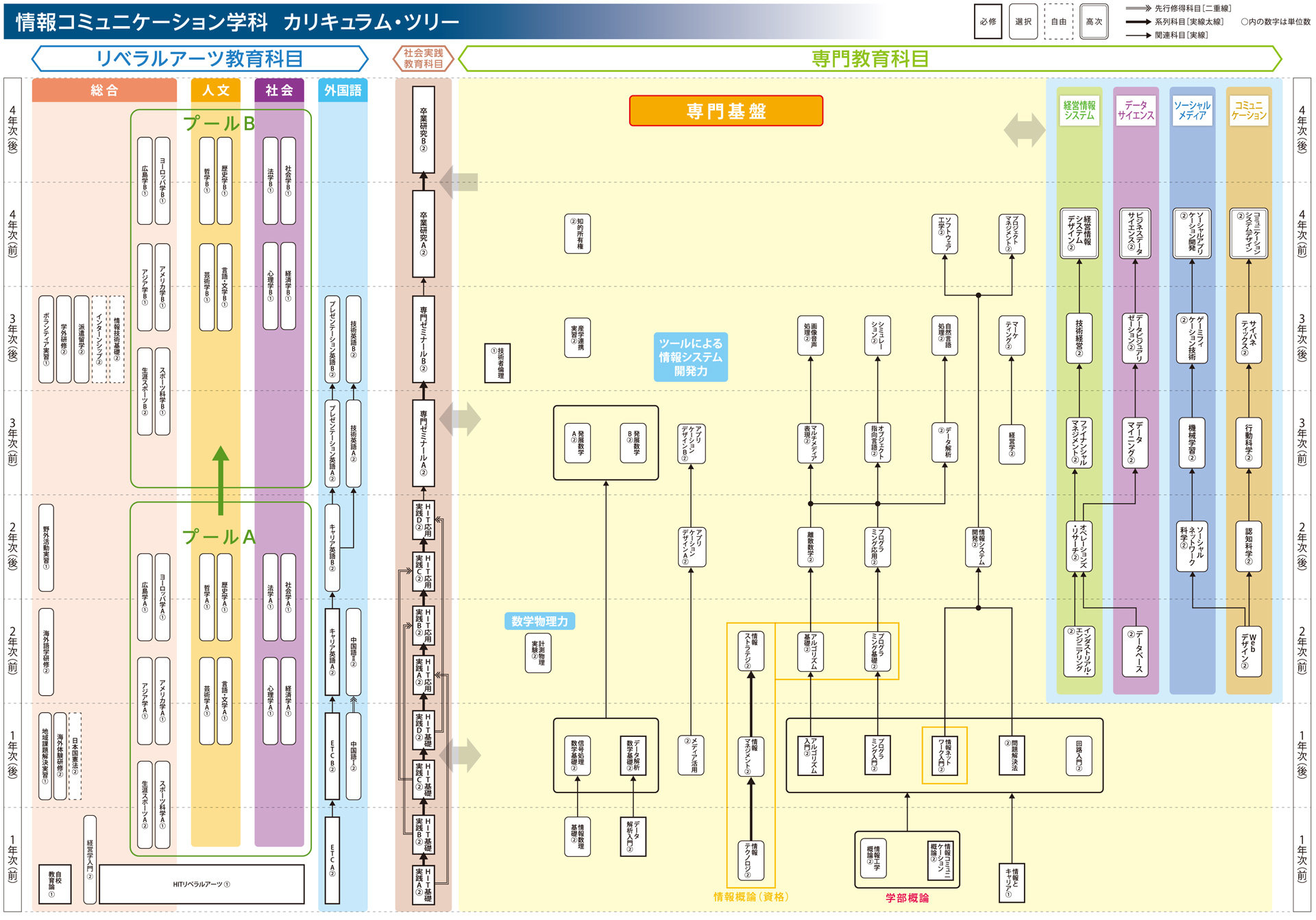
Japanese only






